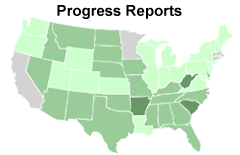Pandemic: New Gold Rush for Billionaires
Washington – While you and I have focused on the economic havoc of job losses, pay cuts and business failures caused by the corona pandemic, we missed noticing that the tiny sliver of super-super-rich at the apex of our economy was simultaneously fattening their already phenomenal fortunes, thanks to the pandemic.
A surprise perhaps because that scenario runs contrary to most downturns. But the sad fact is that the corona pandemic has deepened and exacerbated America’s economic divide – the already gaping inequalities of our 21st-century economy. It’s as if the super-rich and everyone else live on two different planets.
As the Census Bureau reports that more than 118 million Americans lost jobs or suffered cutbacks in income or work-time during the pandemic, America’s 650 Billionaires added more than $1 trillion to their already massive personal wealth, according to Forbes magazine and the nonpartisan Institute for Policy Studies in Washington.
The huge financial winnings of the billionaire elite dwarf even the urgently needed flood of $1,200-per-person checks sent out by the federal government last spring to 150 million Americans. The financial bonanza enjoyed by billionaires was five times the size of that nationwide bailout.

Lines are growing at food banks as the stock market hits record highs. (Left image: REUTERS / Lucy Nicholson)
What’s more, the fact that the ultra-rich were reaping explosive windfall profits on the soaring stock market while 81 million Americans reported having trouble covering costs like paying the rent or putting enough food on the table underscores the chasm between Wall Street and Main Street, the disconnect between the financial markets and the real economy.
Pandemic Isolation Is Rocket Fuel for FAANG
The numbers that define the billionaire boom are truly mind-numbing, out of whack with past experience. During the economic collapse of the Great Recession in 2008, America’s financial super-elite saw its fortunes fall right along with the economic crunch suffered by middle-class American households.

But not this time. According to Forbes, updated by the Institute for Policy Studies, the soaring gains of the billionaire elite defied the economic laws of gravity. Despite the plunge in the nation’s economy, their wealth shot up.
Their colossal gains were powered by the through-the-roof profits rolled up by high tech companies like the so-called FAANG – Facebook, Amazon, Apple, Netflix, and Google, plus retail giant Walmart. High tech was ideally positioned to reap astonishing returns from our almost total dependence on the web, the tube, social media, and online shopping during the physical confinement and isolation under the sway of corona.
Bezos and ex-Wife Now Worth More than $250 Billion
So Forbes, which has long tracked the rise and fall of the ultra-rich, compiled a boxscore so we can all witness the phenomenal payoffs pocketed by the titans of high tech:
- Jeff Bezos, the world’s richest person, ruling CEO of the ever-expanding empire of Amazon, made $13 billion in one day on Wall Street in July and piled up a net gain of $88 billion to his fortune between March and November. By now, Bezos is estimated to be worth $200 billion. Plus, his ex-wife, Scott Mackenzie who settled for $36.5 billion in Amazon stock, has seen her shares boom up to $57 billion this year.
- Elon Musk, founder and driving force behind the Tesla electric car venture and Spacex entrepreneur who is pushing for a US colony on Mars, multiplied his fortune five-fold this year, from $24 billion to $126 billion, right behind Bezos.
- Mark Zuckerberg, the baby-faced founder of Facebook and now ranked by Forbes as No 4 in personal wealth just behind Bill Gates of Microsoft, nearly doubled his fortune from $55 billion to $101 billion in 2020.
- Three children and heirs of Walmart founder Sam Walton – Alice Walton, Jim Walton, and Rob Walton – ranked by Forbes among the dozen richest people in America enjoyed a rise in their collective fortunes from $163 billion to nearly $210 billion during the pandemic.
- So it goes, on down through a list of 650 billionaires, 47 of whom rode the rocketing stock market into the elite billionaires club this year.

Elon Musk, Mark Zuckerberg, and Jeff Bezos are among the billionaires who grew their fortunes amid the pandemic.
“Make the Billionaires Pay Act”
Of course, economic inequality is not exactly fresh news in America. Ever since the early 1980s, lopsided economic inequities have grown enormously, not only between rich and poor but between the soaring 1% and the stagnant middle. By early 2020, the hyper-concentration of wealth in America won the U.S. the dubious honor of being named the most economically unequal among the world’s advanced economies by the 34-member Organization of Economic Development.
Economic inequality has been a hot political issue for nearly two decades. In 2004, the deep economic divide between the “Two Americas” was the cornerstone of Democratic Senator John Edwards in his bid for the presidential nomination. Edwards lost but his idea gained steam. The Occupy Wall Street movement exploded in 2011, spurring nationwide demonstrations of protesters chanting “We are the 99%” and demanding action against the economic power of the 1%.
In the 2020 Democratic primaries, higher taxes on the wealthy and rolling back the $2 trillion rich-friendly Trump tax cuts of 2017 were rallying cries for multiple candidates. President-Elect Joe Biden called for $4 trillion in new taxes, mainly by raising tax rates on high-end earners and boosting corporate taxes from 21% to 28%.
Pressure for a hefty hike on the super-rich is likely to grow as more people become aware of what Frank Clemente, executive director of Americans for Tax Fairness, denounces as the ”orgy of wealth” by the billionaire class over the past nine months. Even if Biden prefers to wait on taxes and focus first on fighting corona and economic recovery, others may force his hand.
Already Senator Bernie Sanders of Vermont has introduced the “Make Billionaires Pay Act.” It would raise several hundred billion dollars by levying a one-time 60% tax on the windfall profits of billionaires during the pandemic year. It’s sure to face tough sledding among Senate Republicans, but reversing the tide of economic inequality has captured one fan in the billionaires’ club. Microsoft’s Bill Gates, No 3 in the Forbes ranking, says it’s time to update the tax system – as he puts it, “starting with raising taxes on people like me.”


 Hedrick Smith, who conceived this website and is its principal writer and architect, is a Pulitzer Prize-winning former New York Times reporter and Emmy award-winning documentary producer for PBS and PBS FRONTLINE.
Hedrick Smith, who conceived this website and is its principal writer and architect, is a Pulitzer Prize-winning former New York Times reporter and Emmy award-winning documentary producer for PBS and PBS FRONTLINE. 


